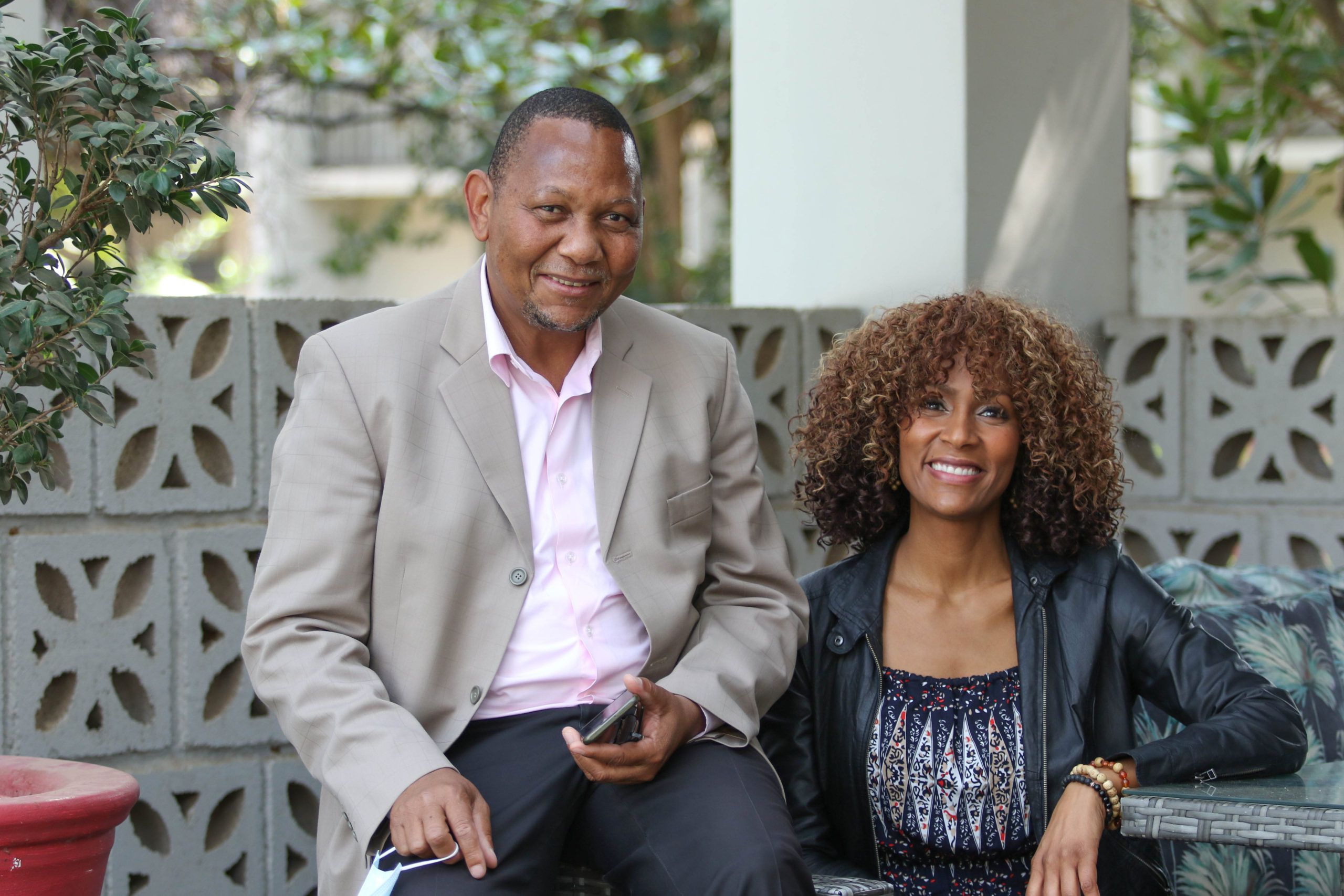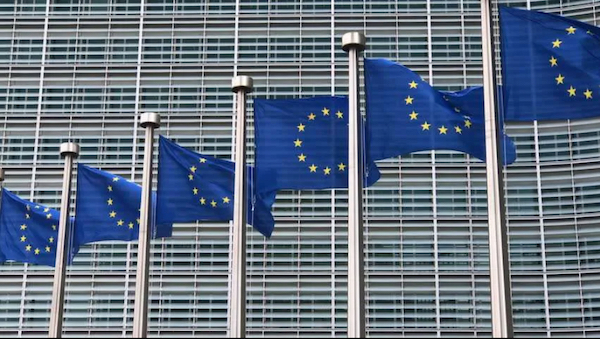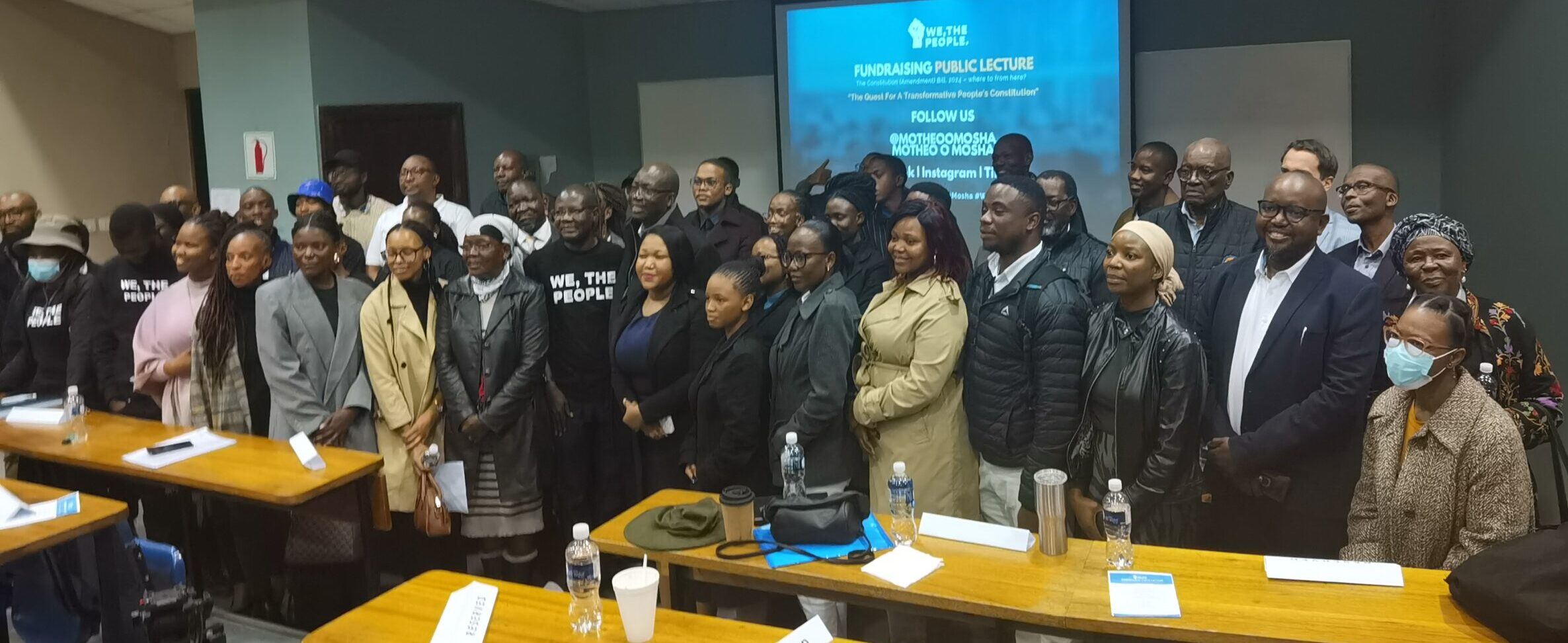
by Hon Justice Professor Dingake*
I have been asked to speak on Botswana’s quest for a transformative constitution in the backdrop of a presidency-driven constitutional reform process that has now yielded the Constitutional Amendment Bill of 2024, still under discussion, and in all probability, likely to pass as per the wishes of the executive, on the main. Towards the end of my discussion of this broad topic, I will discuss the issue of the amendment power, and pose the question, possibly novel amongst lawyers – particularly students of constitutional law, whether Parliament is at liberty to amend the constitution, as it wishes.
It is convenient to start this conversation from the 1st of December 2021. In December 2021 his Excellency the President of Botswana, acting in terms of the empowering provisions of the Commission of Inquiries Act established a Constitutional Review Commission led by my brother, former Chief Justice Dibotelo. The Commission was given 9 months to undertake its work and submit a report to the President which it did.

The model of revising the constitution was to invoke the Commission of Inquiries Act, which was not the best approach having regard to international best practice. This is so because under the said Act the Commission is appointed by the President alone. The Commissioners are appointed by the President alone. The Terms of Reference for the Commission are also the sole prerogative of the President.
The Commission was accountable to the President alone. This approach was adopted by Zambia, in the past, and it caused a lot of unhappiness and frustrations amongst civil society formations, as it did in Botswana.
The approach that Botswana choose is at variance with international best practice as it excludes other key stakeholders, such as civil society and all political parties that must be meaningfully involved from beginning to end. Botswana had many options on how to review a constitution ranking from the best to the worst models and it chose to lower the bar and adopt an exclusionary model.
In choosing this model the government betrayed the aspirations of the people who wished to see the most progressive homegrown constitution to govern their lives. And whilst this is plainly a dream deferred, it is also, by all accounts, a dream betrayed. I am however certain of one thing: the current generation, led by Motheo o Mosha and other allied progressive formations shall one day correct this historic injustice on our people. This much is certain to happen, one day.
It is generally acknowledged that only an inclusive process can yield a legitimate constitution that the people can proudly own. It is important to appreciate that constitutions are primarily about political authority and power within a state; where it is located, and how it is conferred, distributed, exercised, and limited among the separate organs of the state and in relation to its subjects. Constitutions deal with both the substance and procedures regarding these matters.
The principle that a constitution must reflect the will of the people derives legitimacy from the fact that sovereign power rests with the people. And the people delegate this power as they wish. The Universal Declaration of Human Rights proclaims in ringing terms that the will of the people shall be the basis of the authority of government; this will shall be expressed by periodic and genuine elections.
The above principle was given further effect by Article 24 (a) of the 1966 UN International Covenant on Civil and Political Rights which entered into force in 1976,
which provides that every citizen, shall have the opportunity … to take part in the conduct of public affairs either directly or through freely chosen representatives.
This principle forms the basic relationship between citizens and the state. When it is set out in a national constitution, it results in a contract between a government and its people.
The status of most written constitutions is that they are ‘the highest law of the land’, overriding all ordinary legislation. Thus, the creation and reform of a national constitution is vital for lasting peace, good governance and stability of a state and should ideally be an honest expression of a national consensus. This underlines the importance of the requirement of Article 24 (a) of the Covenant that citizens participate ‘directly or indirectly’ in public affairs, a critical part of which is the constitutional review process.
In the last few decades, several countries in Africa embarked on constitution-making or reviews with varying success. Whilst some constitutional review processes were people-driven or centered, others were elitist in approach and driven by politicians who had partisan agendas.
The literature on constitution-making process in Southern Africa suggests that there are typically three phases of constitution-making: (1) the first phase that took place at independence. This was led by colonial powers; It simply conferred self-rule and outlined the basic structure of government with a modicum of human rights. (2) The second phase was characterized by amendments after independence, that tended to concentrate power in the presidency; (3) The third phase is often associated with a wave of democratization. During this phase an attempt was made to promote political pluralism, good governance, constitutionalism, and the rule of law.
As for the content of constitutions, recent constitutional reviews have drawn lessons from the Universal Declaration of Human Rights of 1948 and other international, regional, and sub-regional instruments, including other successful constitutional processes.
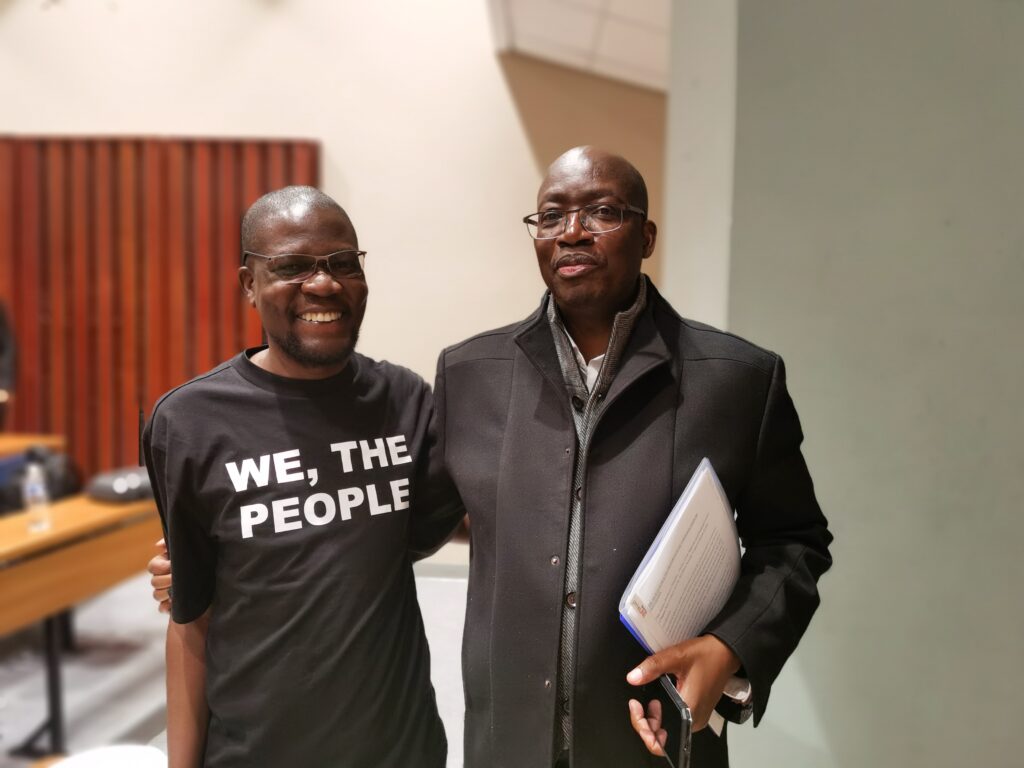
Why Constitutions?
It may be important before going further in our discussions, to say why constitutions are so important. Experience has shown that men and women who are invested with power tend to abuse it. It is precisely because of this potential abuse that countries have fashioned constitutions that can constrain the exercise of power. In a way constitutions are founded on mistrust of those wielding power at any given time.
There are five (5) broad reasons why constitutions are important. Firstly, Constitutions provide for the foundation of almost every nation’s legal system. A constitution is a statement of values and is an embodiment of a contract between the governments and the people of any nation.
Secondly, in many legal systems, constitutions are superior to all other laws, making them critical tools for overturning discriminatory legislation. For instance, in India, in 2017, the Supreme Court ruled that the traditional practice of “instant divorce” in Islamic marriages which allowed men to legally divorce their wives by saying the Arabic word for divorce three times violated the constitution’s protection for gender equality.
Thirdly, modern constitutions refer to or acknowledge the binding nature of certain international human rights instruments. This enhances the protection the Constitution offers to people.
Fourthly, Constitutions can protect people from policies that undermine equal rights.
Fifthly, Constitutions are important in shaping public policy and programs.
Finally, Constitutions are an important tool for civil engagement, education, and activism. In India, activists undertook 115 days march to establish a constitutional right to education. In Kenya civil society groups published copies of constitutions in Braille. In Germany, newly arriving refugees receive copies of a Bill of Rights in Arabic.
With all the above in mind, it is important to say, as I always do, that a constitution is not a panacea for all societal ills. It is a promissory note. It requires judges who can transform these promises into tangible deliverables when called upon to do so. That explains why it is important to ensure, when reviewing a constitution, that the provisions around judicial functions are strengthened and placed beyond the reach of politicians. These provisions must guarantee independence and impartiality, the key attributes of a credible judiciary.
With the above in mind, it is easy to appreciate that a constitutional review is a rare opportunity offered to a nation to ensure that everyone contributes to the establishment of ground rules that will ensure that each one of us and future generations have a fair and equal chance in life to succeed and be happy people.
In a continent where the rule of law and equal worth of all persons are under constant attack, fashioning a constitution that can act as an effective shield is guarantee human dignity.
What then is a Constitutional Democracy?
- The key characteristics of a constitutional democracy include the following:
Popular sovereignty. This basically means that the people are the ultimate source of power, and the authority of government is based on the will of the people. This element of a democratic order finds recognition in many international legal instruments including the Universal Declaration of Human Rights of 1948 (UDHR).
- Majority rule and respect of minority rights. A democracy recognizes that the majority must have their way on how a country is run but it does not permit the tyranny of the majority over the minority. In a constitutional democracy, the rights of the minority must be protected and respected.
- Limited government. In a constitutional democracy, the powers of government are limited by law and the dictates of the constitution.
- Institutional and procedural limitations on powers. In a constitutional democracy, there are certain institutional and procedural mechanisms which limit the power of government.
These include:
▪ The doctrine of separation of powers
Powers are separated among the 3 branches of government being the Executive, the Legislature, and the Judiciary. However, there is occasional inevitable overlapping of functions among these 3 branches of government.
▪ Checks and balances
The above 3 branches of government are required to check each other. For instance, checks and balances may include the power of the court to review Executive action. In exercise of their power of review the courts may declare actions of other branches of government to be contrary to the constitution and therefore null and void.
▪ Due process of law
In a constitutional democracy, the individual rights such as the right to life, liberty, equality, and non-discrimination are guaranteed under the constitution and the rulers are obliged to respect those rights.
▪ Periodic free and fair elections
In a constitutional democracy, elections should be held regularly, and such elections must be free and fair. At the end of the elections and once the will of the people has been ascertained, transfer of power must take place in a peaceful and orderly fashion.
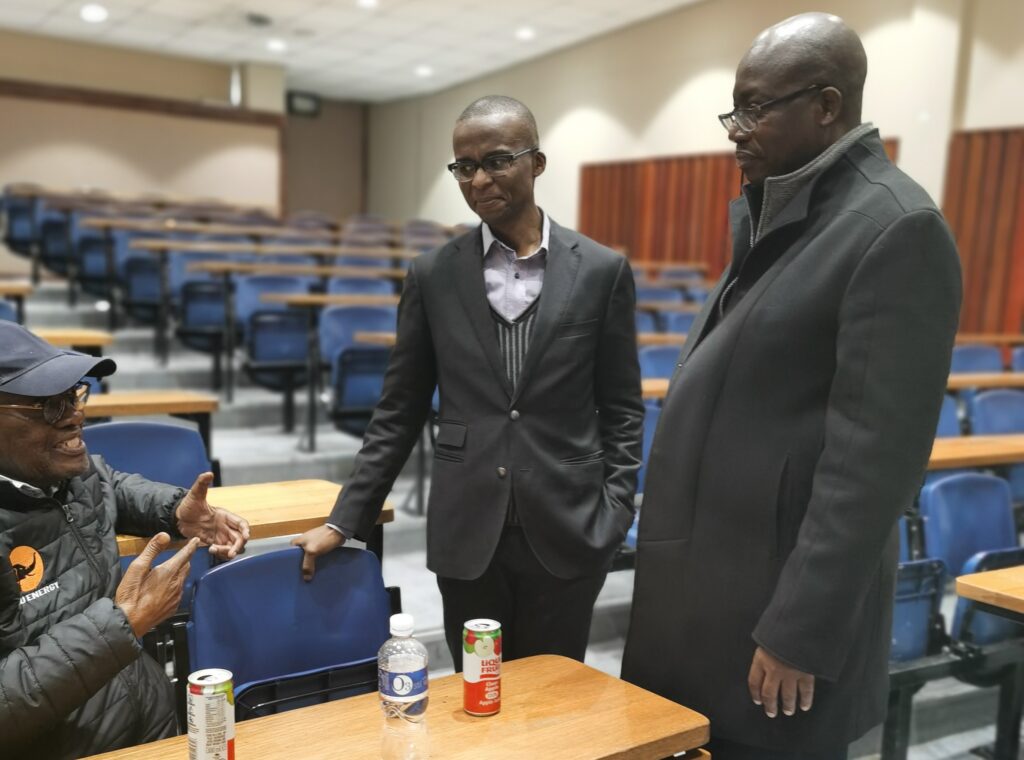
What is a transformative Constitution?
The concept of a transformative constitution encapsulates two notions: transformation and constitutionalism. Transformation entails bringing about fundamental and far-reaching change in a structured way. It entails change for the better. For lack of a better phraseology, you can say it entails far-reaching engineering of society.
Under a transformative constitution, the State cannot be a bystander in shaping a society in which individuals can fully enjoy their rights. A transformative constitution obliges the courts to interpret the constitution with reference to specific social and economic contexts prevalent in the country as a whole.
In the context of South Africa, Albertyn and Goldblatt, writing the South African Journal of Human Rights in 1998, wrote that transformation: “requires a complete reconstruction of the state and society, including a redistribution of power and resources along egalitarian lines…”
In the context of Botswana, a transformative constitution would have to deal squarely with the distribution of power and break the overconcentration of power in one authority. It must also address unequal and insufficient access to necessities of life, housing, food, water, and health. This is so because if these inequalities exist, the quest for substantive equality would always ring hollow. A transformative constitution aims to reduce, and ultimately eliminate, the disparities in wealth and power.
The quest for economic justice for every person must go hand in hand with a legal system that can hold all those who wield power, whether public or private accountable. The legal system must ensure that every exercise of public power is justifiable.
Mureinik, writing within the context of the changes occasioned by the democratic constitution of South Africa, wrote about a shift from “ a culture of authority” to “ a culture of justification” – “a culture in which every exercise of power is expected to be justified; in which the leadership given by government rests of the cogency of the case offered in defence of its decisions, not the fear inspired by its command..”
It must also be emphasized that transformation is not a temporary phenomenon. It is a permanent ideal, a dynamic way of looking at the world that creates opportunities for every person to realize his or her potential to the full.
Constitutionalism is premised on fear of unlimited power – and on the infallibility of human beings and emphasizes the need for a limited government. This is an idea often associated with John Locke and the founders of the American Republic, who argued that government must be limited in its powers and that the authority and legitimacy of any government comes from the people – often expressed through free and fair elections – and that government would respect the limitations on its powers.
Limiting the power of government is an essential feature of the Rule of Law. Aristotle wrote that the advantage of the rule of law, compared to the rule of man flowed from Human fallibility:
He wrote:
“Even if it be better for certain individuals to govern, they should be made only guardians and Ministers of law … for desire is a wild beast, and passion perverts the minds of rulers, even when they are the best of men … the law is reason unaffected by desire”. (Aristotle, The Politics, S Everson (Cambridge) University Press (1998) 78.
In juridical terms the meaning of “transformation” is highly contested and there is no single stable meaning of “transformative constitutionalism”.
However, it may well be that Prof Karl Klare was correct to describe the concept of transformative constitutionalism, as: “A long-term project of enactment, interpretation and enforcement committed to transforming a country’s political and social institutions and power relationships in a democratic, participatory and egalitarian direction”.
Botswana is overdue for a transformative constitution that among other things can honour the republican nature of the state that was created in 1966 by, amongst other things achieving the following:
▪ Dismantling the imperial presidency
▪ Giving more power to the people, including the power to initiate a constitutional amendment.
▪ Enhancing democracy
▪ Altering power relationships in favour of the people elected representatives and the people directly
▪ Broadening the Bill of Rights to include clear enforcement of socio-economic and cultural rights.
▪ The broadening of rights should include the right of every person to an environment that is not harmful to their health and well-being, the right to access to information held by the state, must recognize specific rights of children.
▪ We must specify the right to dignity and provide that the Bill of Rights applies and binds all persons, natural and juristic and binds all persons.
▪ On limitations, we must take a leaf from the Malawi Constitution and provide that: no restriction or limitations may be placed on the exercise of any rights and freedoms provided in the constitution other than those prescribed by law, which are reasonable, recognized by international human rights standards and necessary in an open and democratic society.
▪ Demonstrate a heightened commitment to social justice – in particular, decree measures to reduce the gap between the poor and the rich
▪ The courts must be given expansive powers to control the exercise of public power, and usher in administrative justice; including the imperative to give reasons for every governmental decision and which reasons are subject to judicial scrutiny.
Botswana can draw lessons from many transformative constitutions in Africa and beyond. In Africa, the constitutions of South Africa, Malawi, and Kenya offer useful lessons. Beyond Africa, a few appropriate lessons can be drawn from the Philippines. The 1987 constitution that was triggered by the people’s uprising was far-reaching in making provisions that can assist in transforming society for the better. Following the 1987 constitution, the Courts in the Philippines no longer have to claim space and push boundaries to enforce socio-economic rights.
The Judiciary in the Philippines was given expanded judicial review powers. As part of these expansive powers, the judiciary was given powers not only to “settle actual controversies involving rights which are legally enforceable but also given power to determine whether or not there has been an abuse of discretion amounting to lack of or excess of jurisdiction on the part of any branch or instrumentality of government”.
Under a transformative constitution judges bear the ultimate responsibility to justify their decisions not only by reference to authority or case law but by reference to ideas and values. This approach requires an acceptance of the politics of law.
At the core of the idea of a transformative constitution or transformative constitutionalism is the idea that an undesirable status quo must be improved for the common good. This perspective is informed by the desire to continuously seek better ways to transform society in ways that continuously enhance the lives of the people.
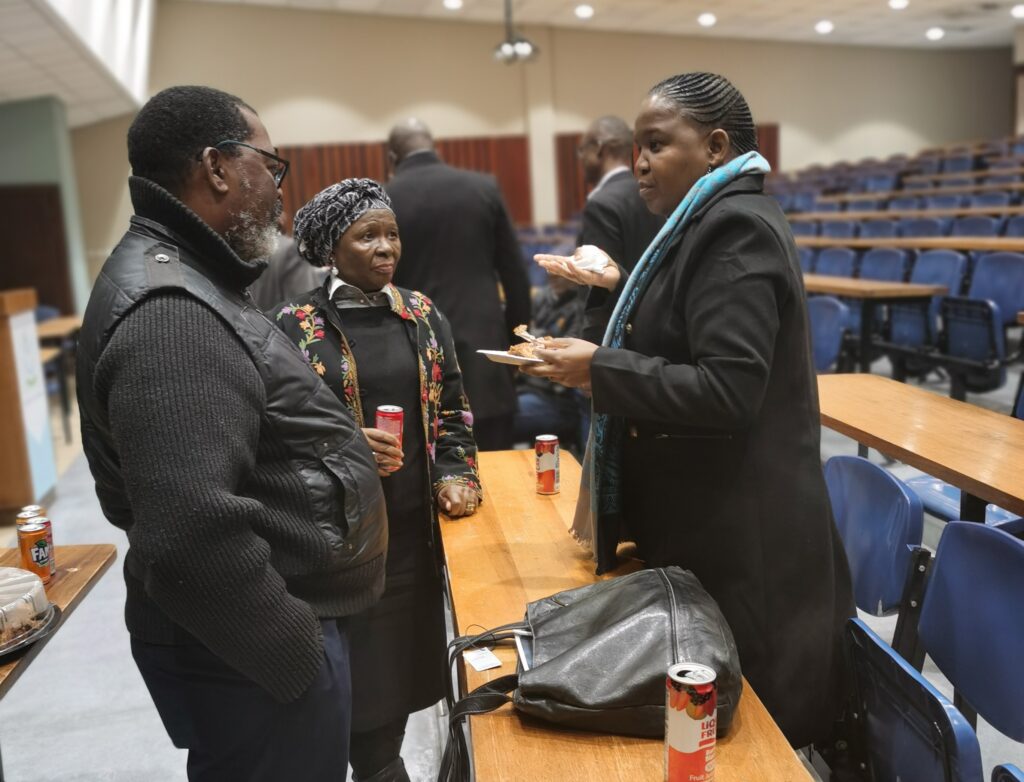
Obligations of the State
Our new constitution must constitutionalize the obligations of the state, breach of which is subject to judicial review.
▪ The state must respect, protect, promote, and fulfill the Bill of Rights
▪ The obligation to respect requires the state to refrain from interfering with the enjoyment of rights.
▪ An obligation to protect requires the state to protect violations of rights
▪ An obligation to promote requires the state to educate and inform people of their rights
▪ An obligation to fulfil requires the state to take appropriate legislative, budgetary, judicial, and other measures toward the full realization of rights.
The Constitutional Amendment Bill: Is Parliament at Liberty to amend the Constitution as it wishes?
An unconstitutional constitutional amendment is a concept in judicial review based on the idea that even an amendment that complies with the constitutional procedural framework may still be unconstitutional. In constitutional law, the notion of an unconstitutional constitutional amendment is deeply problematic. Generally, courts that have intervened to quash an amendment to the constitution have done so in circumstances where the constitutional amendment fundamentally alters the constitutional identity of the state, undermining its core values, principles, and democratic character.
The court would also void a constitutional amendment that erodes the rule of law, undermines the separation of powers, or compromises the independence of the judiciary. This could include amendments that grant excessive powers to the executive or legislative branch, or that compromise the integrity of the judicial system. It has been said that even the exalted position of government that holds executive authority cannot give it powers that the law does not confer it with. This position is a vindication of democracy and the rule of law. This is the rule of law in its formal sense, whereby all governmental power, is subject to the law. The rule of law is harmed by anything that distorts or dilutes the sovereign power of the people.
In most democratic countries, the Constitution is the supreme law of the land, as such, all laws and acts of the branches of government must conform to it. It is the constitution that defines the powers of all the organs of the state.
It follows that the governmental powers, including that which may be exercised by the judiciary, are determined by the parameters provided by the supreme law which is the Constitution. As a common provision also, the legislature is given the authority to introduce changes to the constitutions under stringent procedures which must be followed. The legislature therefore may amend the constitution provided that the changes can pass procedural muster. Below we elaborate on the circumstances under which a constitutional amendment may be declared invalid.
When the amendment undermines the rule of law.
All constitutions are created with an imprint of the sovereign will. These fundamental principles are embedded in the provisions of the constitution to encapsulate the hopes and aspirations of the sovereign people that created it.
One fundamental principle is democracy and the rule of law. The Court is not precluded from intervening if certain inviolable democratic principles are threatened by constitutional amendments.
- When the amendment threatens the separation of powers.
Judicial review was conceived to prevent abuses from the other co-equal branches of government. It is the power of the court to examine and invalidate actions of the executive and legislative branches of government if their actions do not conform to the Constitution.
Amendments that undermine the separation of powers are repugnant to the Constitution as a whole. While it may be argued, as the respondents did in the MQG vs. The Knesset case, that amendments to the constitution are off-limits to the judiciary for as long as they were done in accordance with the legal process, the contention must fail because it will impair a fundamental democratic principle.
- When the amendment alters the integrity of the constitution.
Constitutions have their own basic identity and character, and these have been carefully imbued at the time of their enactment. This identity and character may be likened to a “soul” that makes the Constitution distinct and responsive to the people who created it. This constitutional soul reflects cultural and historical contexts.
A constitution that was created to embody the ideals of democracy will necessarily be altered if drastic changes are made that create a net effect of eroding these first fixed principles.
These extreme and exceptional cases were attendant when The Knesset amended the Basic Law to clip the powers of the judiciary. The High Court of Justice promptly took judicial cognizance and ruled in favor of the petitioners saying that the amendment limiting judicial review violates fundamental democratic principles and weakens the basic structure of democracy.
The use of constitutional value and extra-constitutional value to void a constitutional amendment
As discussed above, the constitution is laden with values that were inputted by the sovereign people. These values such as human dignity, freedom, justice, liberty, and equality. In my many moments of debating with myself, I have wondered whether our time-tested and cherished value of “Therisanyo” can be part of the extra-constitutional value that can be harvested in the engagement with the issue of the amendment power exercised by Parliament.
The HCJ ruled that if an amendment degrades these constitutional values, the Court will not shy away from declaring the change as void even if all the procedural steps were followed in its enactment.
There are also extra-constitutional values which, although not explicitly written in the constitution, nevertheless complete the instrument. Examples of these extra-constitutional values are ethical and democratic norms which are universally recognized as part and parcel of democratic societies.
Procedural correctness alone will not legitimize a constitutional amendment if the substance alters the constitution drastically, so much so that the foundational values and principles of democracy are rendered naught.
In the case of Movement for Quality Government in Israel v. the Knesset, the petitioners sought the Israeli Supreme Court, sitting as the High Court of Justice (HCJ), to strike down an amendment to a basic law, removing the power of Israeli courts to use the “patently unreasonable” doctrine when judicially reviewing executive branch decisions taken at the ministerial level. The law, subject of this case, was passed on July 26, 2023, as an amendment to the Basic Law: Adjudication.
On January 1, 2024, a majority of the Court (12 of 15 justices) held that the Court can exercise authority to conduct judicial review of basic laws and to intervene in exceptional, extreme cases in which the Knesset deviated from its constituent authority.
A majority of the Court (8 of 15 justices) further held that Amendment No. 3 to Basic Law: The Judiciary represented an extreme deviation from the Knesset’s constituent authority that left no alternative to the Court but to declare the amendment void.
It was the first case in the country’s history in which all the fifteen (15) justices of the court sat on the panel. A broader majority of twelve (12) out of fifteen (15) accepted that the HCJ has, in principle, the legal authority to review constitutional amendments.
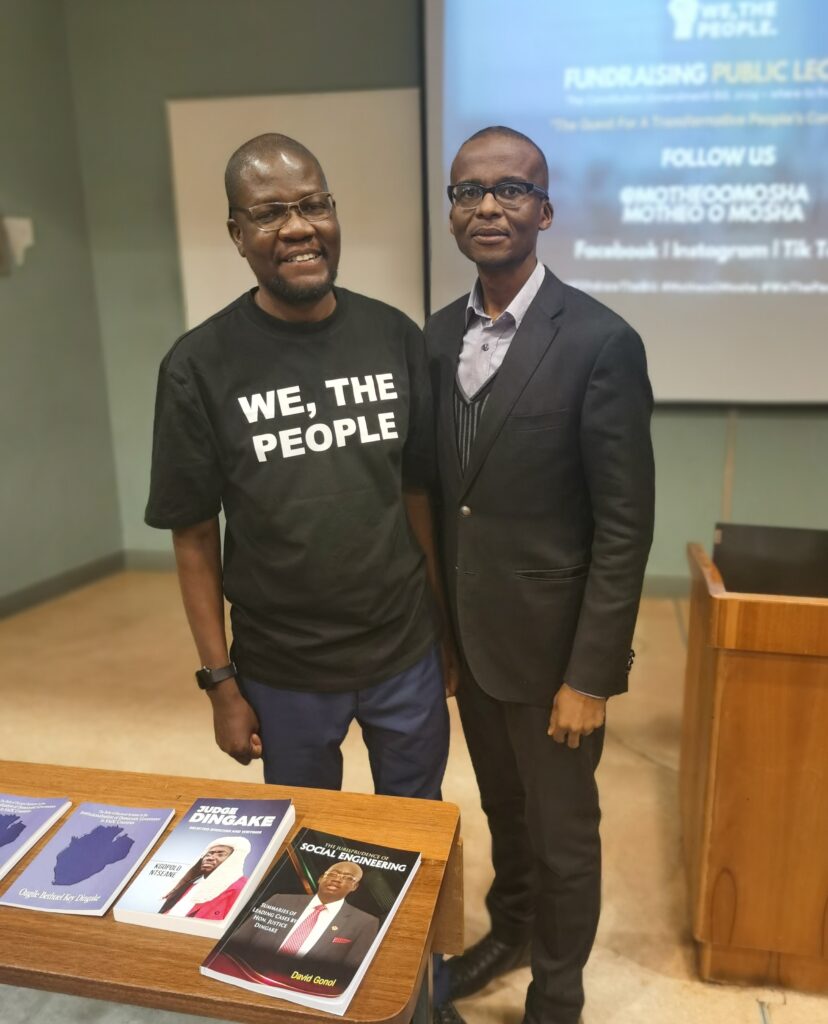
Issues
Two issues fell for determination: The first issue was whether the court has the legal authority to strike down basic laws or amendments to basic laws. The second was if the court does possess this authority, whether the constitutional amendment should be struck down.
Constitutional values and extra-constitutional values
At the end of the day the majority of the justices agreed that an amendment of the constitution and or the basic laws are liable to be struck down if it offends basic tenets of a constitutional democracy such as separation of powers, equality, and checks and balances or on the basis of some extra-constitutional values.
Extra-constitutional values
There are views wherein constitutional adjudication is not primarily a matter of construction. Some view the Constitution as a document virtually without legally significant discernible meaning. Rather, the Constitution is seen as a text whose meaning must be created by judges supposedly sensitive to changing social conditions. Judges must be mindful of the value statements such as the well-being of the society, deeply embedded cultural values, moral evolution, human dignity, the living development of constitutional justice, welfare rights, the national will, and the principle of equality. These extra-constitutional values are given as the basis for determining constitutional meaning.
The purpose of a written constitution is to confer democratic legitimacy by formally expressing the consent of the people to the government’s exercise of its authority. Thus, in a democracy or a republic (as opposed to a constitutional monarchy or oligarchy), the Constitution becomes a social contract by which the people agree to be bound by laws that are made pursuant to and in accord with the Constitution’s commands.
Another purpose of a written constitution is to prevent the arbitrariness and whimsical acts on the part of the body politic from overriding fundamental values and principles. Bills of rights in constitutions typically perform this function of preserving basic civil rights which can help preserve a balance between the need for order and the desire for freedom.
Around the world judiciaries have developed principles to test whether an amendment to a national constitution could be declared unconstitutional. (Singh v The State of Rajasthan; Golakenath v State of Punjab; Bharati v The State of Kerala). The Supreme Court in India has held that the power of Parliament to amend the Constitution is limited, it could not by amending the Constitution convert its limited power into unlimited power. (Minevera Mills Ltd v Union of India AIR 1980 SC 1789.
Some Constitutions specifically attempt to limit the type of amendment that can be made, or specific principles are protected from amendment. An example is the French Constitution that has generally provided that: “the republican form of government shall not be the object of any amendment” (Art 89 of the 1958 Constitution) as would alter the basic structure of the Constitution.
Other Constitutions attempt to protect the whole of the principles in the constitution such as the 1814 Constitution of Norway which provided that amendments “must never…contradict the principles embodied in this constitution, but solely relate to modifications of a particular provision which does not alter the spirit of the constitution.”
Summation
A transformative constitution must place the apex court in particular, as the chief guardian and protector of the democratic process. Superior Courts are generally considered guardians of the people’s rights, the bulwark of democracy, and beacon of justice and light.
The twin principles of equality of powers and checks and balances among the three branches of the government ensure public accountability and that the best interests of the people are advanced.
The principle of checks and balances prevents authority from being concentrated in one branch. Each branch is supreme within its own sphere. It does not follow from the fact that the three powers are to be kept separate and distinct that the Constitution intended them to be unrestrained and independent of each other. The Constitution has provided for an elaborate system of checks and balances to secure coordination in the workings of the various departments of the government.
Separation of powers is a fundamental principle in our system of government and is founded on the belief that, by establishing equilibrium among the three (3) power holders, harmony will result, and power will not be concentrated, and tyranny will be avoided. Any system that is violative of the principle of separation of powers is unconstitutional and void.
Each of the three branches of government has exclusive cognizance of and is supreme in matters falling within its constitutionally allocated sphere; each branch cannot invade the domain of others. The powers of the government are separated to avoid the concentration of powers in any one branch.
Whereas separation of powers means the existence of three equal powers: legislative, executive, and judicial, each carries its own functions, separation of powers, does not mean that each branch can act ultra vires without the other branches’ interference. Consequently, it can be argued that the Supreme Court’s supervision of the legislative process and the court’s action can be construed as in keeping with the principle of separation of powers. It intervened to preserve the balance of power and prevent abuses from the other branches of government such as the legislative branch.
Conclusion
I think is not late for us as a collective, to heed the voice of those who say we took the wrong path to amend our constitution and that we did it half-heartedly. We can still go back to the drawing board, give it another two years, involve all stakeholders, pass an enabling legislation to govern the process, conduct civic education, and utilize internal and external experts in creating a constitution of our dreams.
This we owe to our people who never had the benefit of a meaningful participation in creating their constitution. Once we get the process right, we can learn from the best in terms of content and have a constitution that subjects the exercise of power to the law and people; including creating a pathway in the constitution that gives the people direct authority to initiate the amendment of the constitution if they wish.
We need a new constitution that can effectively hold the exercise of power – whether public or private – accountable to the law – a constitution that can effectively redistribute power and resources in an egalitarian direction. We need a transformative people-driven constitution if we are committed to the rule of law and not the rule by men and women.
- Hon Justice Professor Key Dingake is Justice of the Supreme and National Courts of Papua New Guinea and the Residual Special `Court of Sierra Leone.







